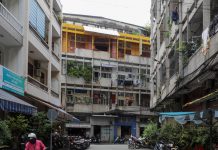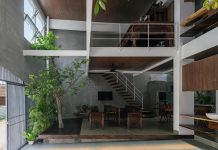
There is an apartment construction boom in Binh Duong Province thanks to strong demand from industrial workers and a supply bottleneck in neighboring Saigon.
Supply in the southern province is now at over 24,000 units, second in the south only to Ho Chi Minh City, according to a recent report by real estate consultant Jones Lang LaSalle (JLL) Vietnam.
The supply figure could rise even further as more buildings are still being built, JLL said, adding that most projects are located in Di An and Thuan An communes, which are near HCMC.
The report said the reason for the large supply is that legal procedures are faster in Binh Duong than HCMC, where many projects have now stalled because of legal obstructions.
Industry insiders said HCMC’s stagnant supply in the last 12 months has created an opportunity for the Binh Duong apartment market.
In Binh Duong, home to an increasing number of industrial zones, workers and technical experts are the main buyers of apartments.
“Plenty of job opportunities are being created by the rapid development of the industrial segment, especially the manufacturing industry,” said Stephen Wyatt, country head of JLL Vietnam.
As one of the earliest industrial areas in the country, Binh Duong, 30 km north of Ho Chi Minh City, is among the most desired destinations for new manufacturers, thanks to excellent infrastructure and well-established administrative procedures to support their operations, industry insiders said.
Nguyen Anh Dao, CEO of real estate firm Viethome, which has been developing projects in Binh Duong for years, said locals’ preferences have been changing in recent years and they are now keenly interested in apartments, both for living and buying to lease to industrial zone workers.
Even as HCMC continues to limit new apartment projects, Binh Duong’s supply would continue to expand sharply this year and next, with HCMC-based developers accounting for 70 percent, he added.

































